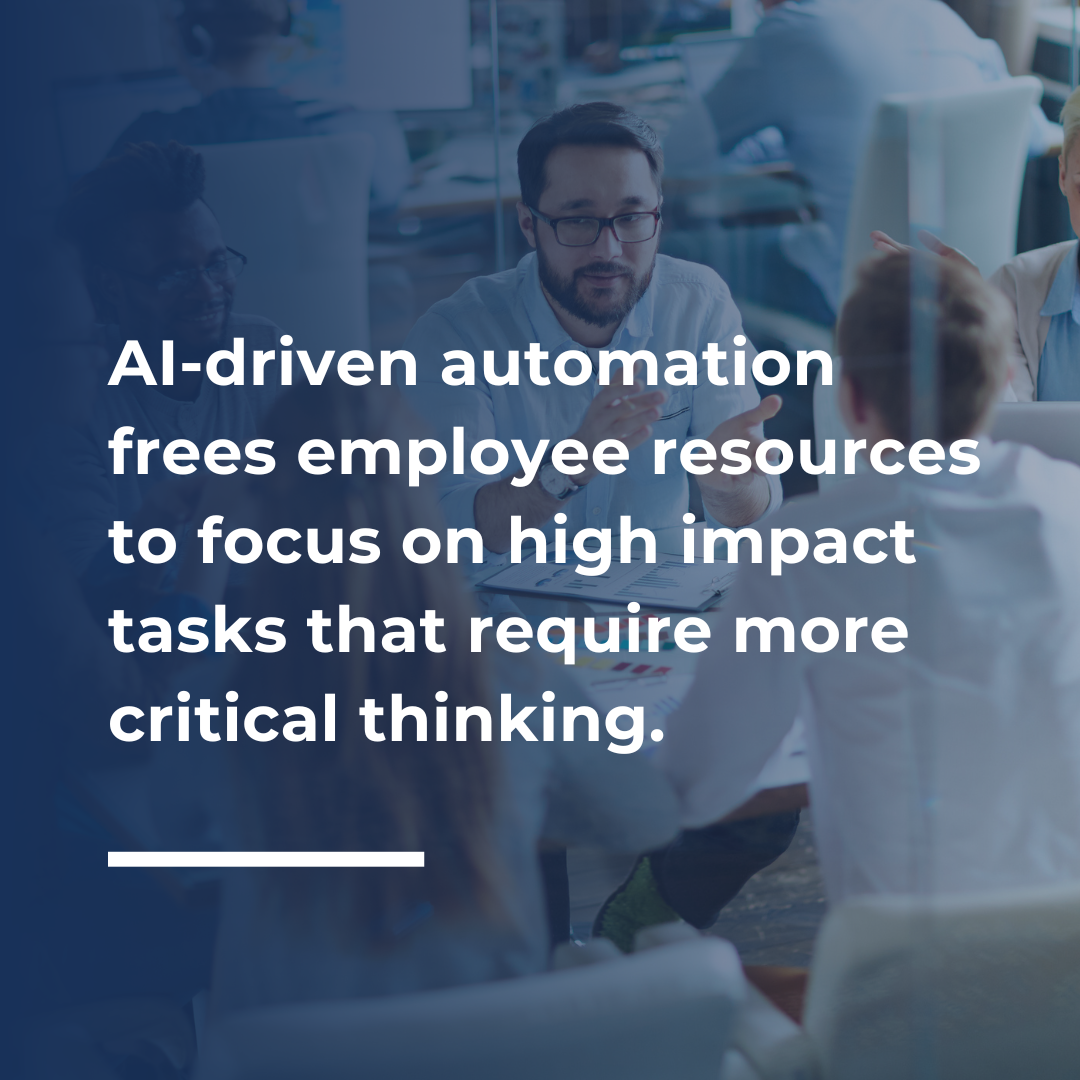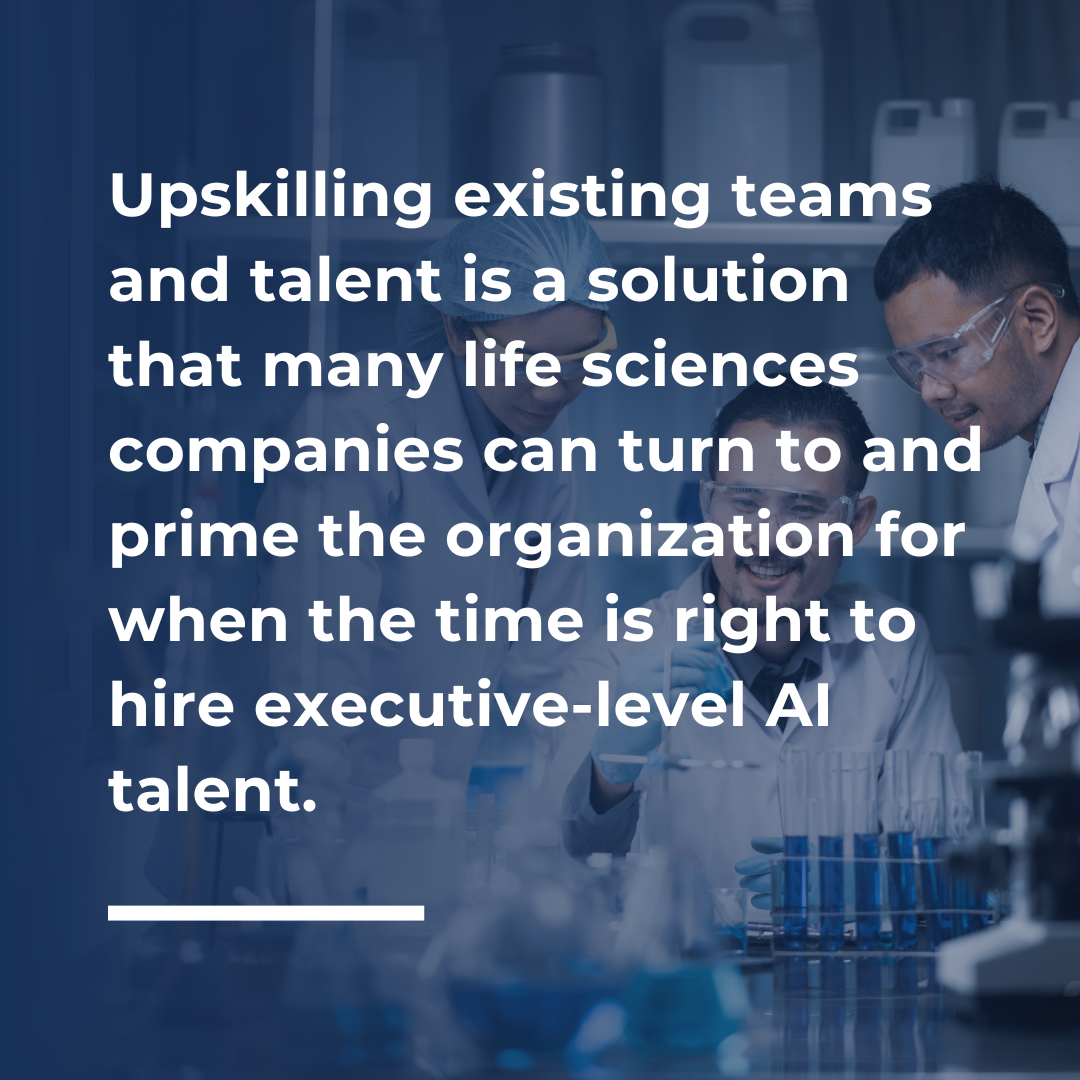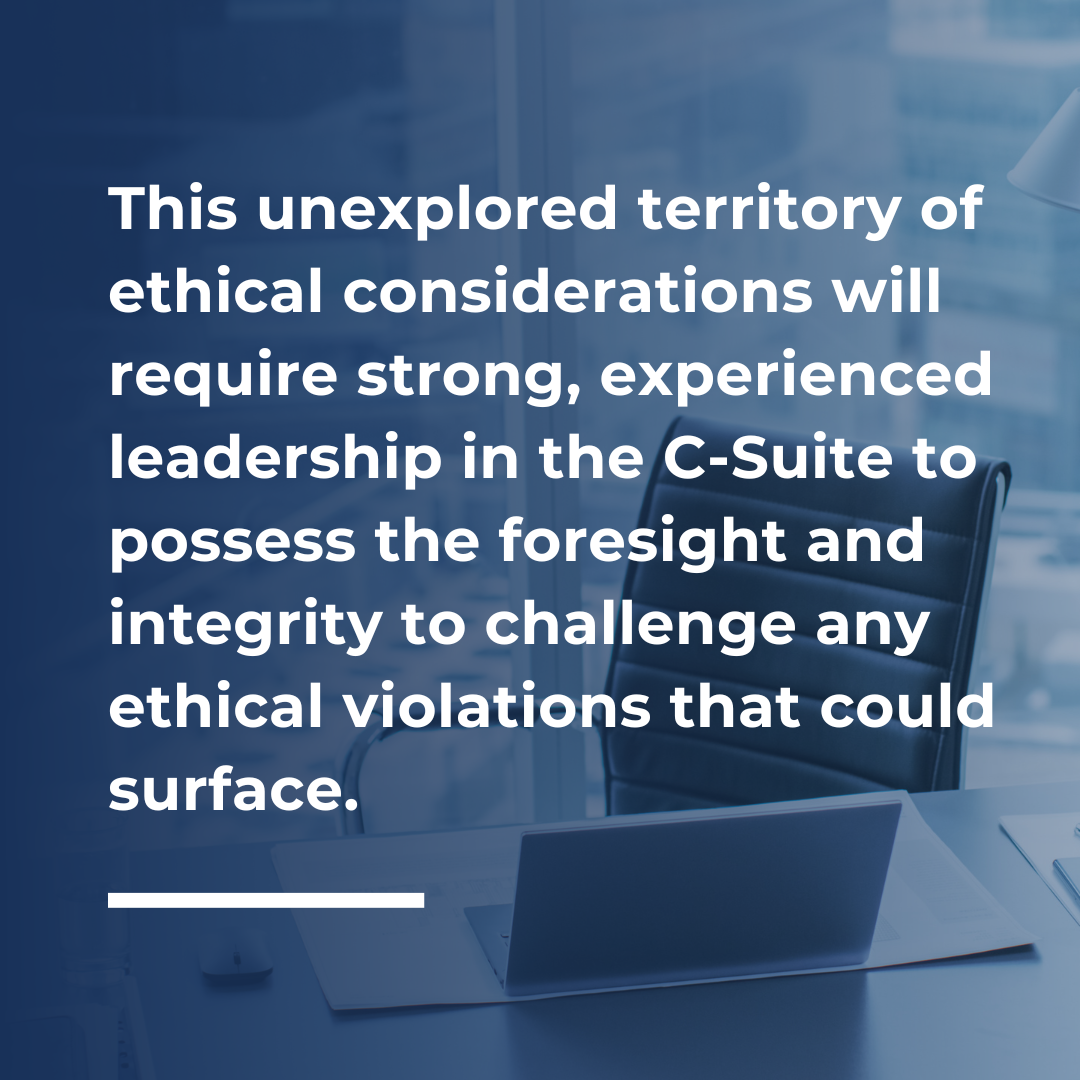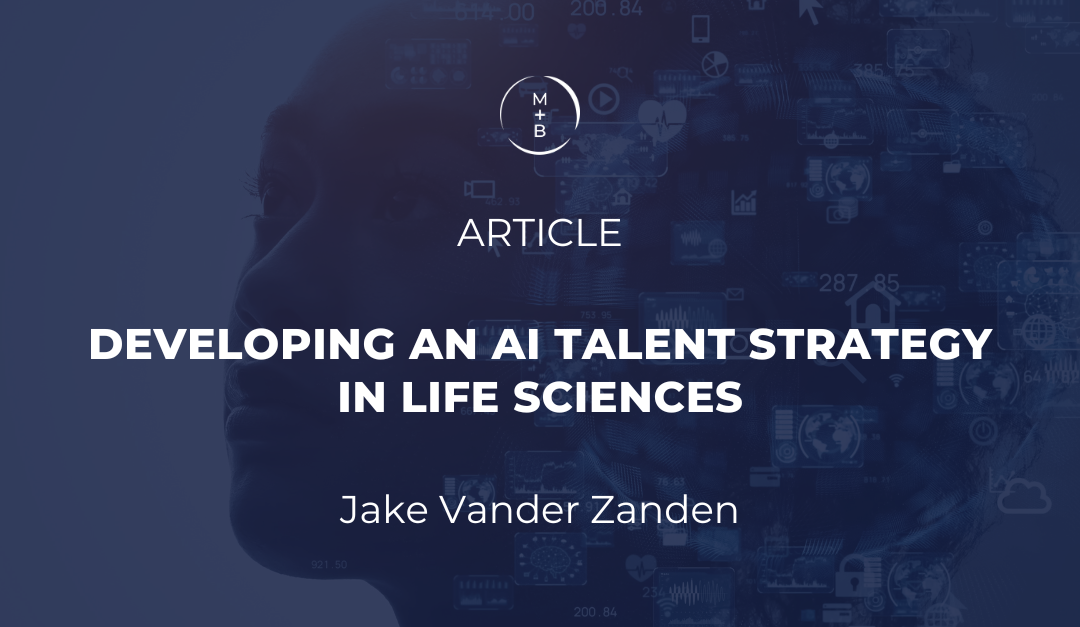A few weeks ago, McDermott + Bull Interim Leaders and I hosted a small breakfast for C-Level executives in the life sciences sector. Simon Arkell, CEO and Co-Founder of Ryght AI, joined us as our keynote speaker to share his thoughts and insights on AI and its impact on the industry. Simon made some excellent points on the topic, including the idea that “you won’t be replaced by AI; you’ll be replaced by someone using AI.” This thought-provoking statement got many attendees, including me, thinking deeply about their AI strategy.
AI Displacing and Supplementing the Labor Shortage in Life Sciences
Simon touched on the opportunity for AI to address labor shortages while simultaneously displacing labor-intensive processes. By leveraging AI, life sciences organizations can streamline workflows, processes, and operations in areas with the highest requirements, such as drug discovery and clinical trial optimization. At the executive level, there is also an opportunity for AI to assist and support the overall talent strategy, not only to address labor shortages but to also deliver more value and productivity from existing workforces and teams. AI-driven automation frees employee resources to focus on high impact tasks that require more critical thinking. It’s important to tie your AI knowledgeable talent strategy to the business outcome that will drive the best results, from recapturing team resources to meaningful implementation, uses, and ROI.

A strategic leader must take the bigger picture into account, asking questions like, “How does this impact patient outcomes, exceed business goals, and deliver results?” When developing an AI capable talent strategy, you will need to look at the deeper intrinsic value an executive will bring to the table. A good AI talent strategy recognizes and corrects the skills gaps when it comes to AI, but a strong one will identify AI leadership talent who is capable of leading, planning, and producing results with a strategic mindset. The best AI executive leadership not only understands how AI can deliver value, but why it matters, and where it will create real opportunities across the organization.
Culturally Positioning AI to Enable Innovation and Discovery
Part of the issue that life sciences companies face with a talent shortage is being able to engage and leverage the potential within their existing skill sets and team members. By harnessing AI technology, companies have the opportunity to unlock the vast potential of their proprietary data, extract insights, and generate results that were previously inaccessible. This strategic use of AI empowers talent to derive actionable intelligence from their data to drive informed decision making and fast track groundbreaking discoveries. From a talent perspective, the use of AI extends far beyond task-based models for analyzing complex research to support real-life applications and deliver concrete outcomes. For this to take shape across an organization, there must be a cultural shift from seeing AI as a task-based tool into a fully-fledged resource for existing teams and talent to lean on. This shift will take time and will undoubtedly face resistance and opposition from some stakeholders, but, in the end, the talent within the organization and industry will adapt and thrive, embracing this new reality. Consequentially, companies will find a more empowered, motivated, and impactful workforce on the other side.
Finding Talent That Understands AI Within Life Sciences

It is not surprising that talent who understands AI is an incredibly scarce sub-market of the executive talent landscape in life sciences. Where scarcity and demand are high for a specific skill or executive function, compensation levels are equally as high. It’s important for companies to purposefully plan for where these skills can be most effective across the organization. For example, bringing in talent that understands AI at the Director level can close the skills gap, and top-grading and coaching this talent over the next year can develop a more strategic mindset to drive for impact that is fully aligned with the vision and culture of the company.
For many life sciences executives, there is an unfounded perception that AI is a skill or attribute that can only be brought in from an outside contributor or leader. However, many existing team members are eager to incorporate AI into their projects, workflows, and responsibilities to deliver value at a higher level. Upskilling existing teams and talent is a solution that many life sciences companies can turn to and prime the organization for when the time is right to hire executive-level AI talent. Bringing in a new executive to lead AI implementations is a top priority for many organizations, but for some that may be a few years away.
A Cross-Department Ownership of Strategy
In many cases, the CEO is tasked with bringing in AI leadership talent to build and implement a complete AI strategy. However, many CEOs have little exposure, acute understanding, or general knowledge of AI and its capabilities. As a result, the entire AI strategy becomes internalized and siloed under one individual’s ownership, oversight, and responsibility. This approach often does not yield success or results, as AI will impact the entire organization — across all departments, verticals, and channels. A strong AI strategy must have cross-departmental buy-in, participation, and KPIs, just as a digital transformation or a Diversity, Equity, and Inclusion (DEI) initiative calls for. A fully realized AI strategy will touch all teams and business units, meaning that these leaders will be paramount to its success.
A New Age of Ethical and Responsible Leadership
As a highly regulated industry, life sciences will become a pioneer for navigating many of the ethical issues that surround AI. This unexplored territory of ethical considerations will require strong, experienced leadership in the C-Suite to possess the foresight and integrity to challenge any ethical violations that could surface. For example, they will need to ensure transparency, fairness, and accountability in AI-driven decision making processes, particularly in areas like patient care and drug development. Life sciences companies must establish robust governance frameworks and ethical guidelines at the leadership level to guide the responsible use and implementation of AI to mitigate any risks, biases, discrimination, conflicts of interest, or unintended consequences.

By having the right leadership, perspective, and team in place, life sciences companies can position themselves as leading innovators on this new horizon. Whether you are actively recruiting for a C-Suite leader or executive for your company, I would love to hear from you. Remember, that a strong relationship with a trusted search advisor is the key to opening opportunities and doors for engaging, competing for, and hiring hard to find life sciences talent.
Jake Vander Zanden
Partner
Jake Vander Zanden serves as a Partner and leader of McDermott + Bull’s Technology + Life Sciences Practice.
Jake spent over 25 years as a turnaround and growth leader completing business transformations as a senior executive at companies like Allergan, Medtronic, and more. He has lived and worked throughout Asia, Africa, and Europe, and managed businesses in all the major regions of the world. Jake’s success has come from his ability to quickly and continuously develop high performing teams and guide their achievement of company changing initiatives, regardless of country, language, culture, or product group.


